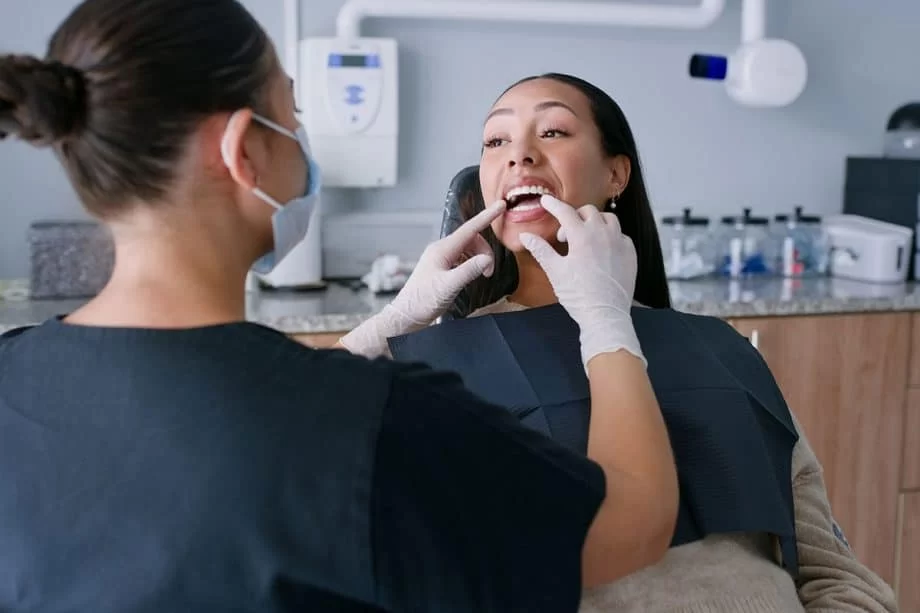
- Causes-of-Jaw-Clicking-and-Tooth-Pain
- Understanding-the-Relationship-Between-Jaw-Clicking-and-Tooth-Pain
- Common-Dental-and-Jaw-Conditions-Causing-Symptoms
- Real-Life-Examples-of-Jaw-Clicking-and-Tooth-Pain
- Effective-Approaches-to-Manage-and-Prevent-Jaw-Clicking-and-Tooth-Pain
- Professional-Care-Options-at-Dentistry-Toothtruth
1. Causes of Jaw Clicking and Tooth Pain
Jaw clicking combined with tooth pain is a symptom that often indicates underlying issues with the temporomandibular joint (TMJ) or dental health. The jaw joint is complex, connecting the lower jaw to the skull and enabling mouth movement. When this joint or the surrounding muscles experience dysfunction, it can produce clicking sounds and pain that may radiate to the teeth.
There are multiple causes behind jaw clicking and tooth pain. One common reason is TMJ disorders, where the joint or its cartilage is damaged or misaligned. Another significant factor is dental problems such as cavities, cracked teeth, or gum infections, which can cause referred pain to the jaw. Stress and teeth grinding (bruxism) also contribute by putting excessive pressure on the jaw and teeth, leading to discomfort and audible clicking.
1.1 TMJ Disorders and Joint Dysfunction
The TMJ consists of a hinge and sliding mechanism supported by muscles and ligaments. When this system is disrupted—due to injury, arthritis, or habitual clenching—the joint may produce clicking or popping noises. These sounds occur when the disc inside the joint moves out of place and then snaps back, often accompanied by pain that can affect the jaw and teeth.
1.2 Dental Issues Affecting Jaw and Teeth
Tooth pain related to jaw clicking can also stem from dental conditions. For example, an infected tooth or deep cavity can cause pain that feels like it’s originating from the jaw. Similarly, cracked or worn fillings might trigger discomfort and contribute to muscle tension around the jaw, leading to clicking sounds during movement.
2. Understanding the Relationship Between Jaw Clicking and Tooth Pain
The connection between jaw clicking and tooth pain can be confusing because the nerves in the face and jaw are closely intertwined. Pain originating from one area can be felt in another, a phenomenon known as referred pain. This explains why an issue in the TMJ can cause toothache-like sensations, and conversely, dental problems might manifest as jaw discomfort or clicking.
Understanding this relationship is crucial for accurate diagnosis and treatment. A patient experiencing both symptoms needs a comprehensive evaluation to identify whether the cause is primarily joint-related, dental, or a combination of both.
2.1 The Role of Nerve Pathways
The trigeminal nerve is the primary nerve responsible for sensation in the face, including the jaw and teeth. Due to its extensive network, inflammation or irritation in one region can trigger pain signals in another. This anatomical detail is why patients sometimes misinterpret jaw joint pain as a toothache and vice versa.
2.2 Muscle Tension and Stress Impact
Stress often exacerbates jaw and tooth symptoms by causing muscle tension and bruxism. The repetitive clenching places strain on the TMJ and can wear down teeth, resulting in pain and clicking. Addressing stress and muscular health is therefore a vital part of managing these symptoms.
3. Common Dental and Jaw Conditions Causing Symptoms
Several specific conditions frequently lead to jaw clicking and tooth pain, requiring tailored treatments.
3.1 Bruxism and Teeth Grinding
Bruxism is a major contributor to both jaw and tooth discomfort. The constant grinding can damage teeth and overload the TMJ, causing clicking and pain. Night guards and stress reduction techniques are often recommended to control this condition.
3.2 Arthritis of the TMJ
Arthritis can degrade the joint surfaces, leading to inflammation, pain, and limited jaw movement. Patients often experience clicking sounds as the joint structure deteriorates, accompanied by discomfort in adjacent teeth.
3.3 Dental Infections and Cavities
Untreated dental infections can cause severe tooth pain and spread inflammation to surrounding tissues, including the jaw joint. Early intervention can prevent the progression of pain and joint involvement.
4. Real-Life Examples of Jaw Clicking and Tooth Pain
Sarah, a 28-year-old graphic designer, started noticing a repetitive clicking noise whenever she opened her mouth wide. Soon after, she experienced intermittent tooth pain that puzzled her. After consulting a dentist, she learned that stress-induced bruxism was the culprit, affecting her TMJ and teeth. With a custom night guard and relaxation exercises, Sarah found relief and returned to her normal routine.
Another case involves John, a 45-year-old who ignored a cracked molar causing sharp tooth pain. Over time, he also developed jaw clicking and stiffness. His dentist explained that untreated dental damage was contributing to TMJ strain. After a restorative dental procedure and guided jaw therapy, John’s symptoms improved significantly.
5. Effective Approaches to Manage and Prevent Jaw Clicking and Tooth Pain
Successful management relies on a multi-faceted approach tailored to the root causes.
5.1 Lifestyle and Behavioral Changes
Reducing stress, avoiding excessive jaw movements like chewing gum, and improving posture can alleviate symptoms. Patients are encouraged to be mindful of jaw tension throughout the day.
5.2 Dental and Medical Interventions
Dental care addressing cavities or cracked teeth is essential. For TMJ-related issues, treatments may include physical therapy, anti-inflammatory medications, or bite adjustment. Early professional evaluation is key to preventing symptom escalation.
5.3 Use of Protective Devices
Night guards or splints can prevent bruxism damage and reduce TMJ strain. These devices are custom-fitted for comfort and efficacy.
6. Professional Care Options at Dentistry Toothtruth
At Dentistry Toothtruth, patients experiencing jaw clicking and tooth pain can access expert diagnosis and personalized treatment plans. From advanced imaging to tailored restorative and TMJ therapies, Dentistry Toothtruth offers solutions designed to target the root causes and provide lasting relief.
Visit Dentistry Toothtruth to find the best products, services, and expert advice to manage jaw clicking and tooth pain effectively. Their patient-centered approach ensures treatments are aligned with individual needs, helping you regain comfort and oral health confidence.







 Prosthodontics of Madison - Kendra Schaefer, DMD & Christine Roenitz, DMD4.0 (25 review)
Prosthodontics of Madison - Kendra Schaefer, DMD & Christine Roenitz, DMD4.0 (25 review) Morrone, Kaye and Yucha Orthodontics - Moorestown5.0 (387 review)
Morrone, Kaye and Yucha Orthodontics - Moorestown5.0 (387 review) Clove Dental Camarillo4.0 (225 review)
Clove Dental Camarillo4.0 (225 review) Rialto Dental Group and Orthodontics4.0 (222 review)
Rialto Dental Group and Orthodontics4.0 (222 review) Madison Oral Surgery & Dental Implants4.0 (661 review)
Madison Oral Surgery & Dental Implants4.0 (661 review) Corona Family Dental Group3.0 (42 review)
Corona Family Dental Group3.0 (42 review) The Importance of Oral Health Education During Pregnancy for a Healthy Pregnancy
The Importance of Oral Health Education During Pregnancy for a Healthy Pregnancy Best Tips for Brushing Your Teeth Properly for Healthy Gums: Essential Techniques for Oral Health
Best Tips for Brushing Your Teeth Properly for Healthy Gums: Essential Techniques for Oral Health Why Skipping Dental Checkups Can Lead to Bigger Oral Health Problems
Why Skipping Dental Checkups Can Lead to Bigger Oral Health Problems Advantages of Porcelain Dental Restorations
Advantages of Porcelain Dental Restorations How Can Diabetes Cause Tooth and Gum Problems? Preventing and Managing Oral Health Issues
How Can Diabetes Cause Tooth and Gum Problems? Preventing and Managing Oral Health Issues Healthy Habits for Promoting Good Oral Health and Hygiene: Tips for a Healthy Smile
Healthy Habits for Promoting Good Oral Health and Hygiene: Tips for a Healthy Smile